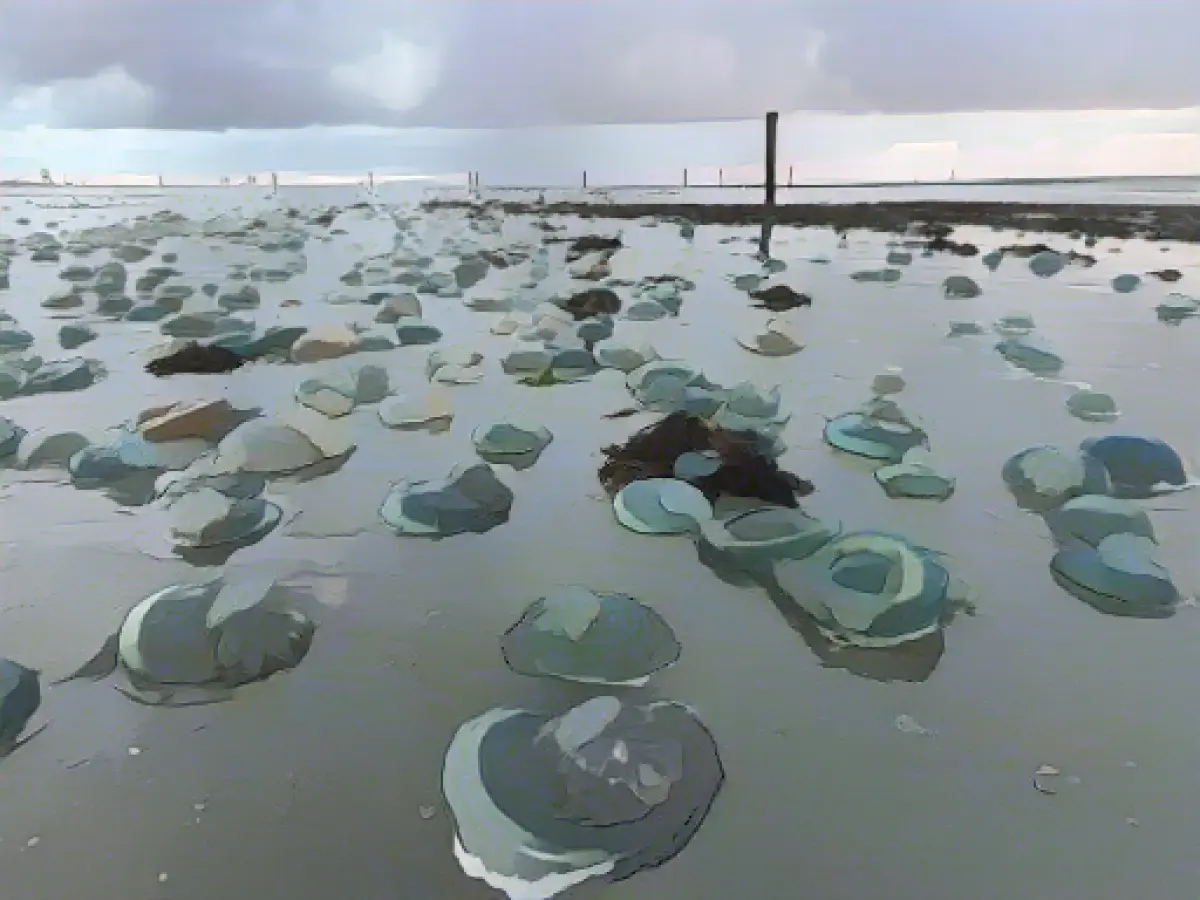Norderney's west beach is surrounded by a spectacle of blue jellyfish, causing quite a stir among its visitors. Over 300 shimmering Rhizostoma octopus, or root-mouth jellyfish, have been washed ashore due to the ocean currents over the past few days. While jellyfish sightings on the North Sea coast are not unheard of, the abundance this time is quite unusual, as mentioned by Berit Finkennest, a biological oceanographer from Wadden Sea National Park House Watt Welten on Norderney.
According to experts, the jellyfish species favors Atlantic Ocean and English Channel breeding grounds. The North Sea is their temporary home, and they usually arrive with the currents during late summer or fall. However, their appearance in November - in such numbers - is quite unusual.
Climate change might be contributing to this anomaly. For one, the rising ocean temperature might be creating more favorable conditions for jellyfish, making them more resilient and boosting their populations. Additionally, the alterations in ocean oxygen levels and pH due to climate change might be aiding these cnidarians, offering them new opportunities to expand their habitats.
Another theory is that the offshore wind turbines could play a role, albeit indirectly. The structures they create might serve as new substrates for jellyfish polyps to settle and proliferate. Furthermore, these turbines can potentially disrupt natural water flows and currents, helping transport jellyfish larvae to new areas, including Norderney's beach.
TheRotund Media reports that coastal aquaculture ponds might be another source of the jellyfish influx. These ponds can provide a stable environment for jellyfish polyps, contributing to the increase in their populations.
Despite the surge in blue jellyfish on the beach, no danger exists for humans. According to the oceanographer, these Rhizostoma octopus lack the stinging threads that are problematic for many other jellyfish species.
These environmental changes might significantly impact not only the arriving jellyfish but also other marine life and seabirds that inhabit the area. Visitors aiming to witness this natural phenomenon should note that the jellyfish decompose quickly, making it crucial to be present at the right time.
[1] OceanToday.com, 12 May 2017: The impact of climate change on jellyfish populations [2] The Conversation.com, 27 June 2018: How offshore wind energy could inhibit jellyfish populations and combat their increasing threats to marine ecosystems






